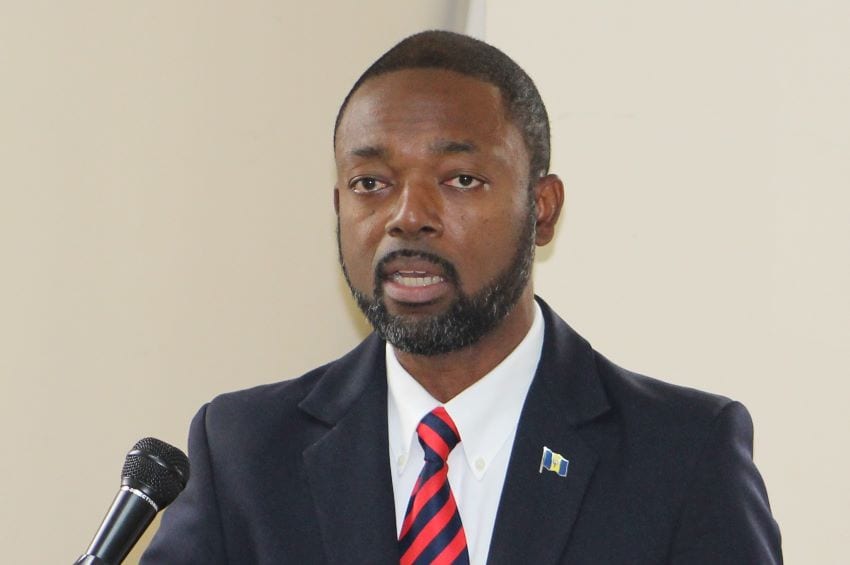
Non-governmental organisations (NGOs) and civil society organisations (CSOs) are being urged to seize the opportunity to be part of Barbados’ thrust towards becoming a green economy and green society.
This call came today from Minister of Labour and Third Sector, Colin Jordan, as he addressed the start of a meeting with the Barbados Association of Non-governmental Organisation (BANGO), on matters related to the allocation of renewable energy for the Third Sector.
Minister Jordan, while acknowledging that he recognised the challenges faced by many CSOs and NGOs, said he was aware of the critical role these entities played in developing a country, a role which was “sometimes missed or overlooked”. Thanking BANGO for its involvement, he said all segments of society had to be involved in development for it to be fair, just, balanced and inclusive.
Emphasising that Government had a responsibility to work with CSOs and NGOs, and was treating BANGO as the umbrella organisation, he noted one of the main challenges was that of financial sustainability.
He said recognising an opportunity in the renewable energy sector, Government had therefore “set about carving out a portion of the renewable energy demand to set aside for non-governmental organisations, civil society organisations”.
Non-governmental organisations heard that they were now part of the first global definition for the social and solidarity economy, developed last year at the International Labour Conference, in Geneva.
Elaborating, Minister Jordan said: “It was a bit of a revelation for me because sometimes you see civil society organisations as a little bit outside of economic activity, but the fact that it takes cash to care, and…money really would drive your programming, it means that economics is also part of your consideration. So, while you are not for profit, you have to be developing and generating funds, economic resources that allow you to move your programmes forward.
“You want to be effective; Government wants you to be effective; and so this matter of developing economic models that speak to developing – not yourself, not enriching yourselves but developing those to whom your organisations are targeting – becomes important.”
BANGO members were further told that “just this year, the UN General Assembly adopted a resolution on the social and solidarity economy” and used the definition developed in Geneva as the international definition.
Explaining what this means for BANGO members, the Labour Minister said: “That social and solidarity economy idea is really what drives us to carve out that space within the renewable energy sector for civil society organisations, NGOs and CBOs (Community-Based Organisations). What we are gathered today to do is discuss how the idea of government can become a reality. Government is not an NGO; Government is not BANGO; and so while Government places certain resources at the disposal of organisations, the mechanics or the structuring of how it is to work really becomes the subject of intense discussion and consideration, and so … as you work through how this could possibly work, I would like you to keep in mind the kind of ethos that has driven you so far; that ethos being that you are working selflessly to develop others. It is not a selfish approach to development….
“And, as you discuss how to make real participation in the renewable energy sector, you ought to bring that approach to the discussion as well. There are no easy answers to how to make it work.”
